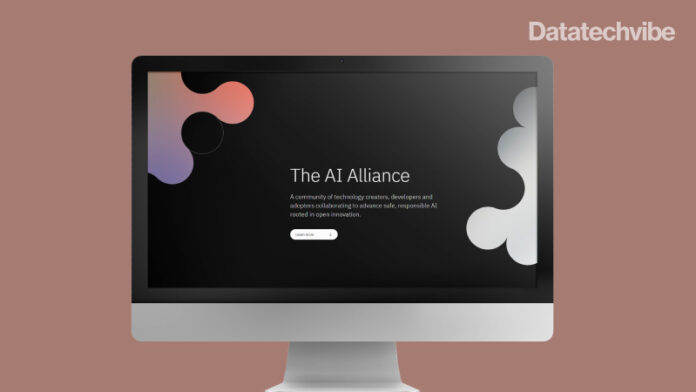Meta and IBM Launched AI Alliance, focusing on six areas, including regulation and safety, as near-term initiatives.
Meta Platforms and International Business Machines launched a coalition of more than 50 artificial intelligence companies and research institutions to push an OpenAI model to gain traction in a fast-growing market.
The AI Alliance, with its core members, Intel, Oracle, Cornell University and the National Science Foundation, said it is pooling resources to stand behind “open innovation and open science” in AI. Its members largely support open source, an approach in which technology is shared free. It draws on a history of collaboration among Big Tech, academics and a fervent movement of independent programmers.
IBM said it has worked since August with Meta to bring together organisations that haven’t been in the limelight, like OpenAI.
“Frankly, we’ve been slightly unsatisfied with the overall debate and the discussions on AI over the last year. We did not feel that it reflected the diversity of the ecosystem that is making this AI moment possible,” said Darío Gil, senior vice president at IBM and director of IBM Research.
According to a forecast from research firm International Data Corp., enterprises worldwide will spend nearly $16 billion on generative AI solutions alone this year, with spending hitting $143 billion by 2027. IDC said that Generative AI’s compound annual growth rate will be nearly 13 times that of worldwide IT spending over the same four-year period from 2023 to 2027.
“The pitch could be a compelling one to businesses who are seeking more vendors to work with. But it will all depend on how well they execute it. For instance, the AI Alliance will need a solution consisting of integrated AI hardware, software and other tools that make it easy to use multiple AI systems,” said Ritu Jyoti, group vice president of worldwide AI at IDC.
“A 50-person AI research team will be involved in the AI Alliance by working on open scientific advancement of AI systems, and that it shows customers they have a choice,” said Jeremy Barnes, ServiceNow’s vice president of product AI.
“If you think the future of AI is going to be determined by two, three or five institutions, you’re mistaken,” IBM’s Gil said. “I hope that it gives more clarity and confidence that the world of open innovation is a world to bet in.”
As near-term initiatives, the alliance focuses on six areas, including regulation and safety. Gil said it will soon release a benchmarking tool for AI safety and model validation.









